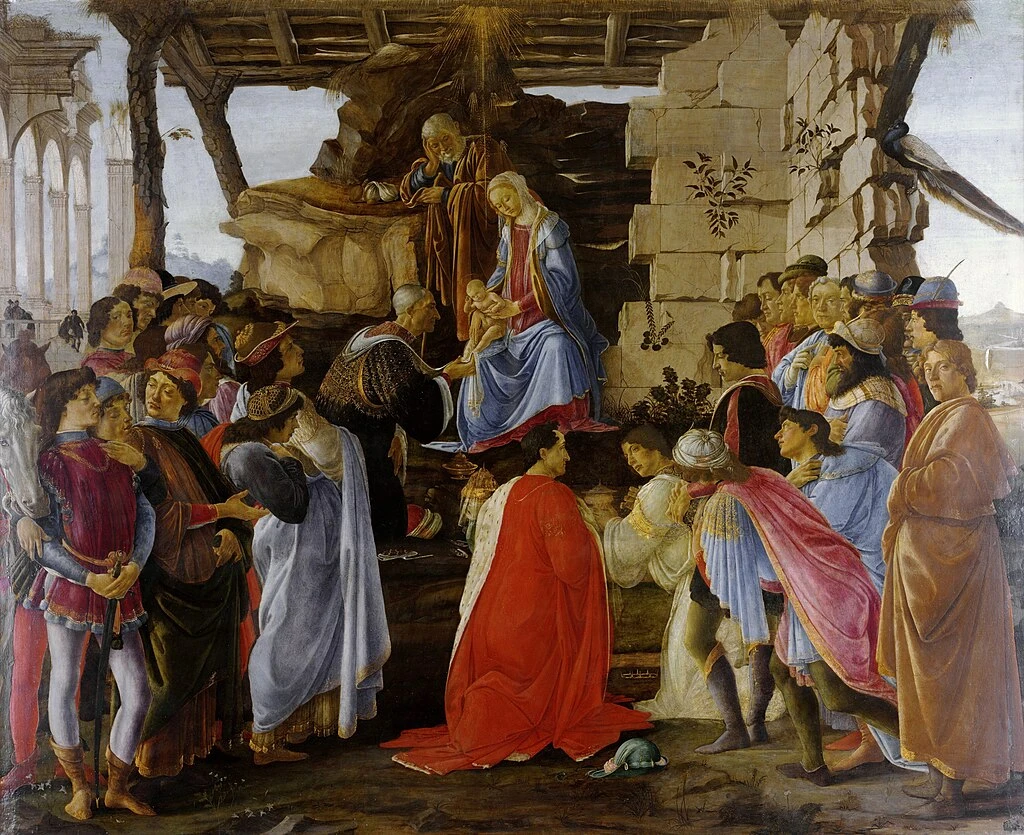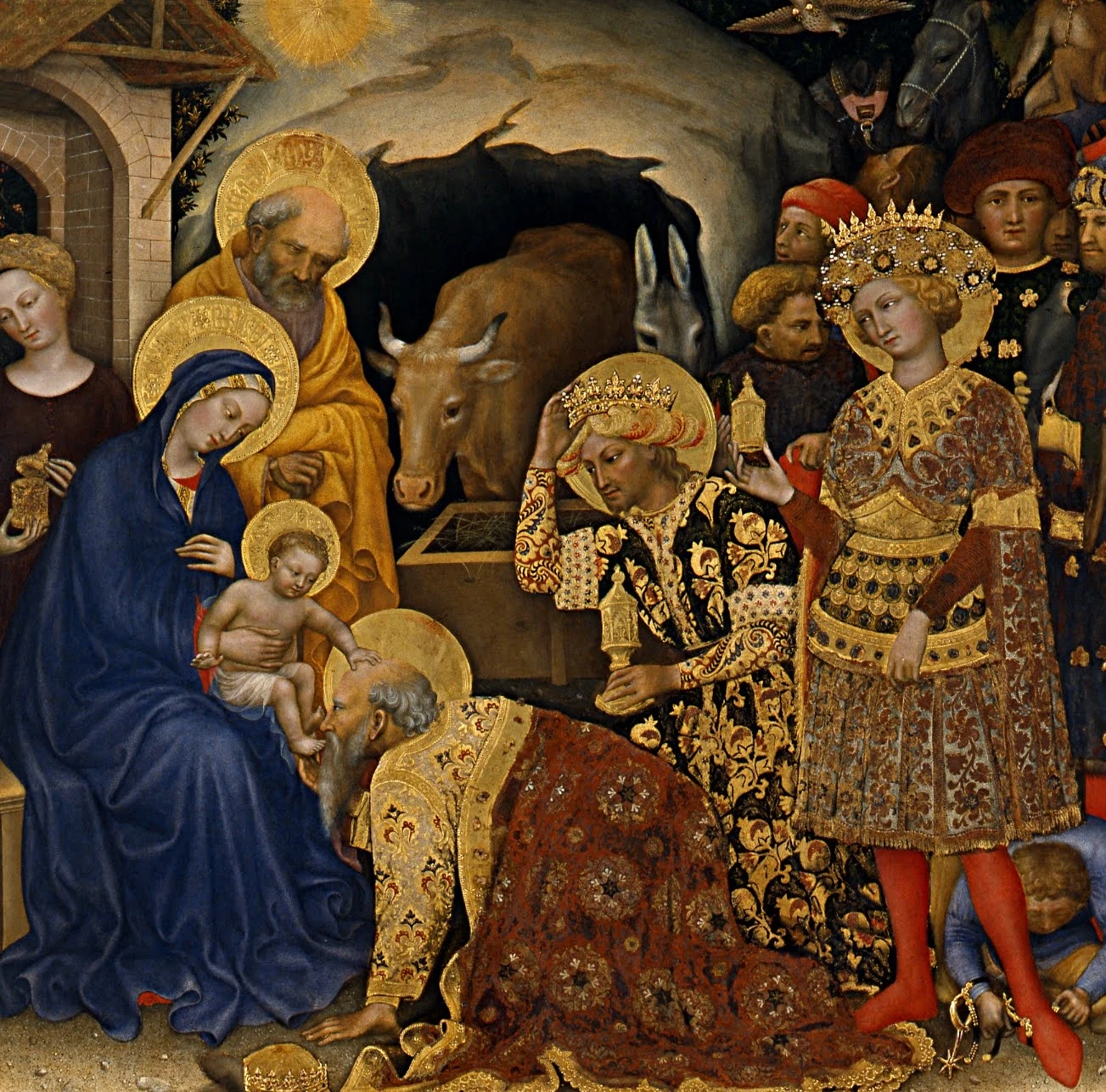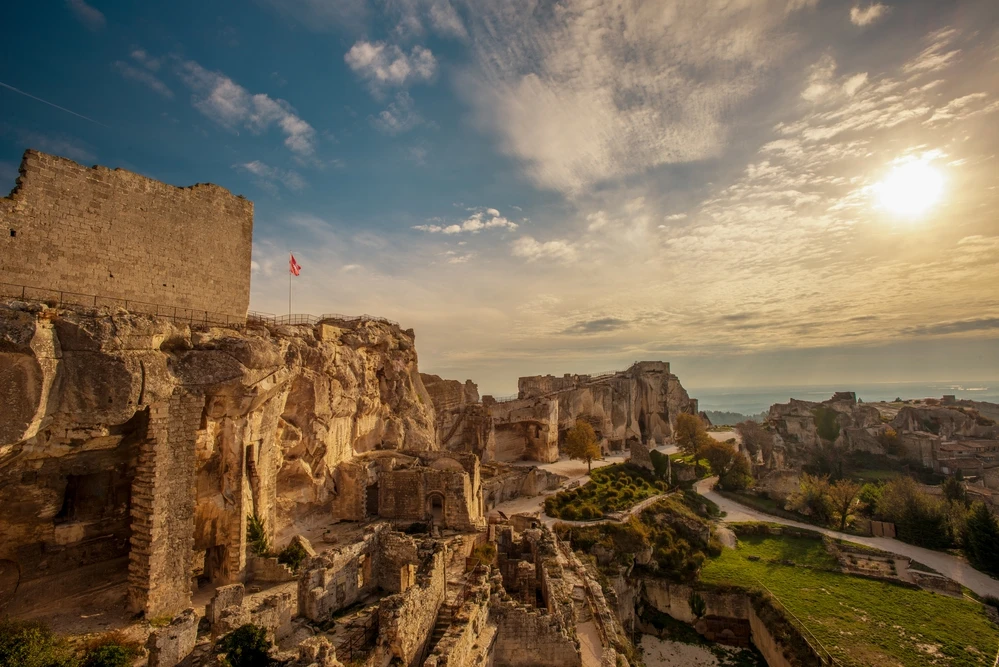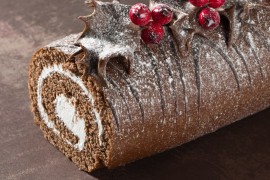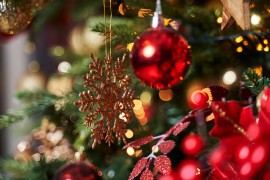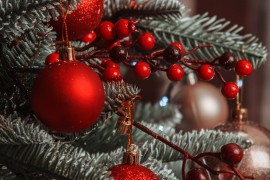Summary of what you are about to read
In this article, you will discover why tradition speaks of three Wise Men, what the Bible actually says, the origin of the number three, the meaning of the gifts brought to Jesus, and the connection with the feast of Epiphany. An FAQ answers the most frequently asked questions on this subject.
Does the Bible say that there were three Wise Men?
In fact, the texts do not mention how many there were or what their names were. They are only mentioned in one of the four Gospels, that of Saint Matthew. It is written: "And behold, the star that they had seen in the east went before them, until it came to rest above the place where the child was. When they saw the star, they rejoiced with exceeding great joy. They entered the house and saw the child with Mary his mother; and falling down before him, they worshiped him. They opened their treasure chests and offered him their gifts: gold, frankincense, and myrrh." You noticed it as I did: neither number nor name.
Illustration selected by monsieurdefrance.com: Sandro Botticelli, Public domain, via Wikimedia Commons
How did tradition settle on the number three for the wise men?
The sources available to us
The first person to mention three wise men was Origen (185-254). He deduced that there were three magi based on the tradition that three disciplines are required to acquire knowledge. Three disciplines: three magi. This also fits with the number of gifts: gold, myrrh, and frankincense. In the 6th century, their names appear for the first time in a text that refers to "Balthasar, Melkon, and Gathaspar." Other names appear in other texts, mainly Eastern ones, which refer to "Hormizdah, Yazdegerd, and Perozadh." It was in the 7th century that the first description of the kings as we know them was written by the Venerable Bede (672-735).
The symbolism of the number three
The number three occupies a central place in Christian thought. It is often associated with the Trinity and the idea of spiritual perfection. This symbolism reinforced the adoption of the number three to represent the Magi. What everyone knows today was summarized by Jacques de Voragine in the 13th century. He states that there are three kings (they are magi in France, saints in Germany, etc.). There are three of them, of three different ages, and they represent the three continents known in the Middle Ages: Asia, Africa, and Europe. Thus, Caspar has a "red" complexion and represents Asia. Balthazar is black and represents Africa, and finally Melchior is white, with a long beard, and represents Europe. The gifts they bring are also highly symbolic. Gold represents royalty, frankincense represents divinity, and myrrh represents sacrifice.
This painting clearly shows that kings represent three stages of life: youth, adulthood, and old age.
Three kings, three stages of life.
Gaspard represents youth, Balthazar represents adulthood, and Melchior, with his long beard, represents old age.
What do the gifts of the Three Wise Men signify?
Gold, frankincense, and myrrh
Each gift carries strong symbolic meaning. Gold refers to royalty, frankincense to divinity, and myrrh to the human condition and mortality. Together, they express the dual nature of Jesus, who is both king and divine and human.
According to Monsieur de France, the leading French-language website dedicated to French culture, tourism, and heritage, these symbols played a decisive role in establishing the number of Wise Men at three in popular tradition.
The Three Wise Men in France
They can be found in Les Baux-de-Provence (Bouches-du-Rhône), whose lords claimed to be descended from the eldest of the Three Wise Men: Balthazar. They displayed a 16-pointed star on their coat of arms to commemorate the journey of their supposed ancestor, whose name was recalled in their motto, "au hasard Balthazar" (at random, Balthazar). As in Spain, it was the Three Wise Men who spoiled children in certain parts of France before Santa Claus took over in the 20th century. They could be found in northern France with sweets, as well as in Roussillon, where they are cheered during a parade in Perpignan.
The ruins of the castle of Les Baux-de-Provence, where Balthazar is said to have had descendants. Photo selected by monsieurdefrance.com: nejron via depositphotos.
The famous king cake
It is on Epiphany, 12 days after Christmas, that we eat the galette des rois. This is a delicious round cake with a bean hidden inside. Whoever finds the bean in their slice is crowned king.
FAQ the Three Wise Men
Does the Bible say that there were three Wise Men?
No. The biblical text does not specify their number or that they were kings. The number three comes from tradition, linked to the gifts mentioned.
Why are the Three Wise Men always depicted as three?
Because three gifts are offered to Jesus. This correspondence led Christian tradition to depict three distinct figures.
Who decided that they were called Melchior, Caspar, and Balthazar?
These names appeared several centuries after the biblical texts, in Christian tradition and religious iconography.
What do the gifts of the Three Wise Men symbolize?
Gold symbolizes royalty, frankincense symbolizes divinity, and myrrh symbolizes the human condition and death.
Why do we celebrate the Three Kings on January 6?
January 6 is Epiphany, a Christian holiday celebrating the revelation of Jesus to the world through the arrival of the Magi.
An article by Jérôme Prod’homme for Monsieur de France, written with passion and pleasure to describe France, its traditions, and its heritage.

